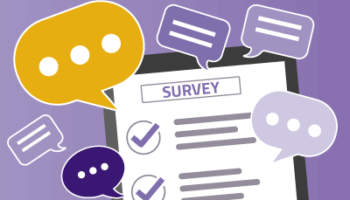Building back better – Neurological Alliance priorities for the coming year
12/07/2021
Our financial year runs from July to June. We are beginning a new financial year here at the Neurological Alliance and have refreshed our business plans for the next 12 months. It has never been more important for the neurological community to come together to improve treatment, care and support. And we have some exciting plans for the coming year to help do just that.
Our strategic goals guide everything we do. They are:
- Increase the influence and involvement of people with neurological conditions
- Increase and strengthen the collective voice of the neurological community
- Increase and drive the national policy profile of neurology
- Increase and support local action to improve neurological services
- To build a sustainable organisation capable of bringing about change
You spoke, we listened
We have developed our plans using input from across the sector, but importantly from our membership. 49 member organisations covering a range of neurological conditions responded to the survey. They told us these topics should be the top of our list:
- Disruption of neurological services due to covid-19
- Accessing the right health specialist
- Accessing effective treatment
- Support for mental wellbeing
- Health inequalities
- Information and support at diagnosis
- Rehabilitation
We’re also focusing on understanding the continuing impact of COVID-19 on people with neurological conditions, and calling for much needed support for services to recover.
Understanding the experiences of people with neurological conditions
The past 18 months have been some of the most painful and isolating for so many people with neurological conditions. Many people are waiting longer for specialist support, with the number of people waiting more than a year for a neurology or neurosurgery appointment increasing by more than 9000 % in the past 14 months.
We want to provide a platform about these experiences in order to influence much needed change.
That’s why we will be working with partners across the UK to host ‘My Neuro Survey’ aka our fourth Patient Experience Survey. This will provide an important opportunity to understand how the pandemic has impacted people, and what’s needed now. You can read more about the survey here.
A renewed commitment to equity, diversity and inclusion
Health inequalities have been brought into sharp focus throughout the pandemic. As a community, we do not yet fully understand how sociodemographic characteristics might influence access to, and experience, of care, and that has to change.
We’ll be working with people with neurological conditions from a range of sociodemographic groups to understand their experiences in more detail.
We are also making sure that everyone with a neurological condition has the opportunity to engage with ‘My Neuro Survey’, and are reaching out to partners across the UK to ensure we are listening to as diverse a range of people as possible through this work.
Importantly, we are also reviewing our internal practices, ensuring that our people policies and practices reaffirm our commitment to equity, diversity and inclusion. This will include, for example, reviewing our recruitment practices to ensure they are as equitable and fair as possible.
Finally, many of our members are undertaking really important work in this space, and it is clear from my conversations with colleagues across the sector there is much to learn from one another. We are convening an Equity, Diversity and Inclusion interest group to encourage learning across the sector.
Navigating NHS reform
The NHS in England is undergoing some of its most significant reform in nearly a decade – this is likely to have profound impacts on the way in which services for people with neurological conditions are funded and provided across the country.
We’ll are working with charities across the sector the ensure the reforms work for people with neurological conditions –, this includes looking at Integrated Care Systems, the extent to which they prioritise neurological conditions in their plans, and the extent to which they involve people with long term conditions and the voluntary sector in their work.
We’ll also be working with the National Neuroscience Advisory Group (NNAG) to map out what good treatment, care and support looks and feels like for people with neurological conditions – this work will form an important basis to encourage ICS leaders to take neurological service improvement seriously in their region.
Never more needed
This is just an overview of the coming 12 months. We continue to ensure that our members can connect with one another through our policy and interest groups on mental health, research and rare conditions.
There are many opportunities for us to work together towards our common goal of improving treatment, care and support for people with neurological conditions and those closest to them.
With more members than ever now part of the Neurological Alliance, I am very much looking forward to campaigning loudly on these issues – our collective voice has never been more needed.
If you represent an organisation that supports people with neurological conditions, join the Alliance now. If you have a neurological condition, follow us Facebook and Twitter or sign up to our newsletter to stay in touch.





